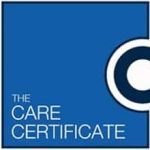Description
Communication Online Training Course
This online Communication online training course provides an awareness of the principles of good communication and record keeping within a care environment, the e-learning course will ensure effective communication skills and good practice when recording information.
- Developed by professionals
- Accredited by The CPD Accreditation Group
- 100% online, learn at your own time and pace
- Translates into over 100 different languages.
- Instant certificate downloaded.
Who is it for?
This training is suitable to all staff working within Adult Health and Social Care.
Nurses & Doctors:
- Learn better talking and listening skills to discuss diagnoses, care instructions, and complex medical procedures with empathy.
Front Desk Staff:
- Improve phone manners, handle stress, and connect positively across cultures at reception points and information desks. Improve customer service skills for stressful situations.
Patient Transport Staff/Care Aides:
- Combine equipment training with safe, dignity focused patient handling.
Billing/Insurance Staff:
- Respond constructively to clients during insurance confusions. Use right words in challenging situations.
Managers:
- Develop staff bonds beyond statistics through two-way sharing.
At its core, positive communication change requires openness and effort from everyone. Moving away from unhealthy old habits together is what cements new understandings. Then respect spreads.
When will I get my certificate?
Once you have successfully passed our course you will be able to download and print your certificate immediately.
As this course has been accredited by the CPD Group your certificate will contain the CPD logo and unique reference number.
Course Outline: Communication Online Training
By attending the effective communication online training, participant can expect to learn the following:
-
Definition of communication:
- Explore the fundamental concepts of communication and its importance in various contexts.
- Understand the elements of effective communication, including verbal, nonverbal, and written forms.
- Learn how effective communication contributes to building positive relationships and promoting understanding.
-
Communication methods:
- Discover different communication methods and channels, including face-to-face, written, electronic, and telecommunication.
- Understand the advantages and limitations of each communication method.
- Gain insights into selecting appropriate communication methods based on the context, audience, and purpose.
-
Models of communication:
- Examine different communication models, such as the linear, interactive, and transactional models.
- Understand the components involved in the communication process, including sender, message, receiver, feedback, and noise.
- Analyse how communication models can enhance understanding and improve the effectiveness of communication interactions.
-
Communication techniques:
- Learn practical communication techniques, including active listening, empathy, reflection, clarification, and assertiveness.
- Explore strategies for adapting communication to different audiences, cultural backgrounds, and communication barriers.
- Develop skills in expressing ideas clearly, asking open-ended questions, and providing constructive feedback.
-
Managing communication:
- Understand the challenges and barriers to effective communication, such as language barriers, sensory impairments, and emotional factors.
- Learn strategies for managing communication breakdowns and conflicts.
- Explore techniques for fostering effective teamwork and collaboration through clear and open communication.
-
Legislation and good practice:
- Gain an overview of relevant legislation and regulations pertaining to communication in specific fields or industries.
- Understand the legal requirements and ethical considerations related to confidentiality, privacy, and consent.
- Explore best practices and guidelines for ethical and professional communication.
-
Key principles of record keeping:
- Learn the importance of accurate and comprehensive record keeping in effective communication.
- Understand the key principles of record keeping, including confidentiality, accuracy, relevance, and timeliness.
- Explore different types of records and their purposes, such as care plans, progress notes, and incident reports.
-
Care records:
- Gain insights into the purpose, content, and format of care records.
- Understand the importance of maintaining clear, concise, and organised care records.
- Learn about the legal and ethical considerations surrounding the documentation and storage of care records.
-
Errors and prevention:
- Recognise common errors and pitfalls in communication and record keeping.
- Understand the potential consequences of communication errors and the importance of error prevention.
- Explore strategies for preventing and addressing communication errors to ensure accuracy and quality in documentation.
Throughout the Communication Online Training, participants can expect a combination of instructional modules, interactive exercises, case studies, and assessments to enhance learning and skill development.
Real-life examples and practical scenarios will be used to illustrate key concepts and promote application in various professional settings.
Key Points: Communication Training
- Definition of communication
- Communication methods
- Models of communication
- Communication techniques
- Managing communication
- Legislation and good practice
- Key principles of record keeping
- Care records
- Errors and prevention
Benefits of Online Communication Training
Here are 5 benefits of our online communication training:
- Flexible and Convenient Fits busy schedules. Complete lessons and practice from home or on breaks. Own pace.
- Trains All Staff: Teach hundreds of staff compassion skills through videos. Seeing progress reports.
- Promotes Reflection: Thinking alone first builds confidence before practicing talking through issues as a group. Redo attempts to improve.
- Real World Practice: Roleplay real situations staff encounter: medical news, disagreements etc. Body gets used to how to handle.
- Quick Refreshing: Revisit training material whenever as a reference. Reminds of constructive responses in tough situations.
While in-person also has benefits, e-learning is very convenient. It teaches even large teams through virtual drills to master difficult health care talks.
This benefits organisations, professionals and patient experiences long-term.
What is Communication Training?
Communication training teaches people important skills for better listening, explaining, resolving conflicts and more in the workplace.
It uses:
- Workshops, online lessons or coaching
- Interactive elements like roleplays, discussions, demonstrations
- Frameworks, sample scripts and best examples to follow
- Repeated practice with trainer feedback to improve
- Strategies to tackle barriers like stress, culture gaps
The goal is empowering staff to connect, inform and influence others effectively in diverse work situations.
Training gives people usable tools to communicate with more clarity, tact and empathy when challenges arise. Practising as a group transfers these skills into everyday habits.
This benefits both individuals and the whole organisation.





